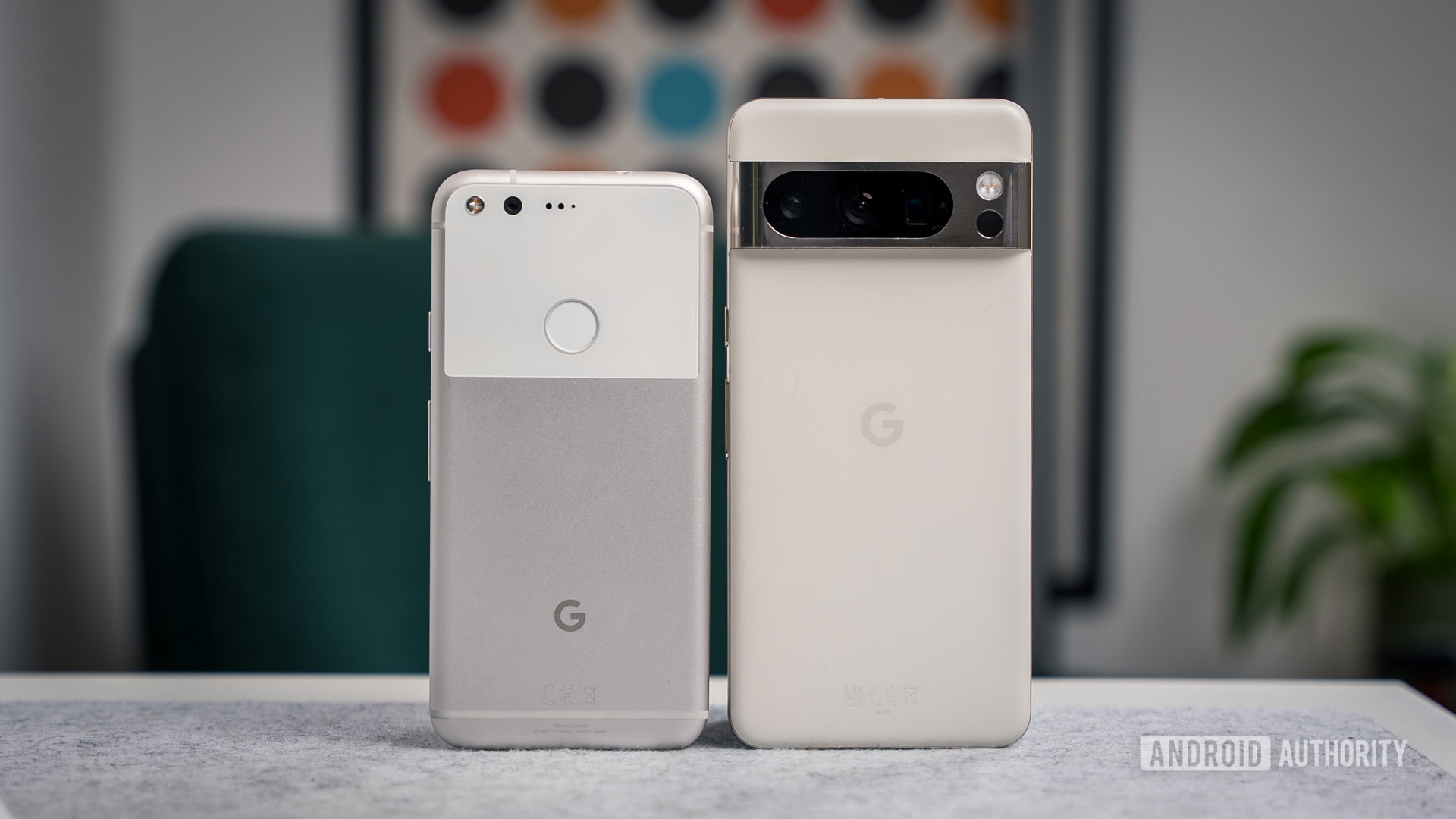The original Google Pixel launched in 2016 and the series changed not just Android, but the entire mobile market in the last eight years.
By taking away the MicroSD slot to force users towards expensive cloud storage?
I’ve been holding onto my phone well past its prime since I can’t help but see every new phone on the market as a downgrade because of this.
I know people say that you don’t NEED an SD card if you buy the most expensive version and rely heavily on cloud services but it’s definitely an intentionally worse customer experience.
I’m actually really sad Sony pulled out of the US, since I was planning on getting an Xperia this year. Now it feels like I’m limited to Samsung or Google if I want a flagship SoC…
I know people say that you don’t NEED an SD card if you buy the most expensive version and rely heavily on cloud services but it’s definitely an intentionally worse customer experience.
Honestly, this depends entirely on the user. My previous phone had 64 GB internal storage and an SD card slot, but I never felt any reason to use it - all I need is enough storage to hold the photos I take until I get home and copy them to a hard disk (which then periodically gets backed up to another hard disk stored at a relative’s house). Then I can delete most photos and videos and keep only a few that I think I might want to share.
I’m not saying this is a workflow that everyone would find acceptable, just showing that different people can have vastly different needs. I personally definitely don’t need an SD card if I have 20 GB+ available for my photos, and that doesn’t seem to be a problem with 128 GB being the baseline for current Pixels.
Of course that doesn’t mean I’m going to stop ragging on Google for taking away features with obvious intention of creating problems for a portion of the userbase and selling the solution. There’s no reason Pixels can’t have an SD card slot at their current price.
Now it feels like I’m limited to Samsung or Google if I want a flagship SoC…
Google’s Tensor is definitely not a flagship SoC (Tensor 5 is rumored to change that, but its launch is still far in the future and there’s no guarantee it actually lives up to these rumors), so it seems like deciding on the vendor should be pretty easy if you don’t mind Samsung’s OneUI
all I need is enough storage to hold the photos I take until I get home and copy them to a hard disk
This is what I do. Routinely clean the phone every now and then with a backup to physical storage. I’ve personally never had problems with storage, and until recently was using a 64 GB phone. The SD card was always just for my music collection and it’s sad to lose that but not the end of the world (I didn’t listen to music on my phone that much anyway). I’ve never had to use cloud services because I don’t need access to every single photo or video I’ve taken at all times.
That was a thing long before Nexus became Pixel though
This reads like a pure ad. And just in time for the pixel 9 launch event tomorrow. What a coincidence.
I’d say the Nexus phones (pure Android) were way more a game changer than the Pixels.
Yes, but the nexuses did not have the courage and the vision to remove jacks and sd cards, all while getting more expensive. Fuck I miss me a proper nexus.
I agree with the headphone jack, but the only Nexus with a microSD slot was first one, the Nexus One.
My kingdom for the return of the rear fingerprint sensor.
I hated rear fingerprint sensor tbh, didn’t help that it failed 1/3 of the time. Current location is much better imo
now if only they would listen to customer feedback
We already moved the fingerprint scanner from the back of the phone to the front of the phone, and our focus groups say it would be SO COOL if the scanner was even farther forward!! So on our next model, to unlock your phone, simply punch yourself in the face
They forgot to expand to more than 20 countries in the world
On the longer OS updates introduced with the Pixel 6, this article of course frames them as being part of benevolent and innovative Google’s plan to provide the best product possible for consumers (ignoring, as usual, that Fairphone did this first for real ethical reasons) but I’m not convinced this is the whole story. Smartphone sales were dropping significantly during that period due to the financial climate while AI technology was becoming an increasingly important part of Google’s business. My theory is that Google and Samsung saw the writing on the wall and decided to pivot away from handset sales and towards subscription-based revenue from their new AI tools and an expanded suite of paid proprietary services. The AI tools were introduced as free tools to get consumers hooked, but will all require subscriptions eventually. The idea here is to lock consumers into the ecosystem through a combination of longer software support and “essential” tools and services which they pay an ongoing fee for. This is also why the aesthetic design of phones has slowed so much in recent years - Google and Samsung don’t want their consumers to feel like their phone is “old” and go shopping for a new one because that runs the risk of the consumer leaving their ecosystem. They want to keep them happy and loyal to the brand (while still giving them money) so that when the eventually do look for another phone it will be another Pixel or Galaxy.
So they’ve “pushed RCS and AI into the mainstream” which are both negative developments.









